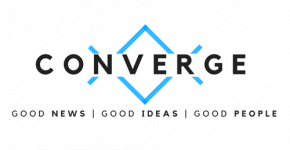Conversations on good governance usually circulate at an institutional level in the public and private sectors. It is a process of decision-making, monitoring, and implementation based on current resources and the environment. Answering the questions of prioritization and structure, good governance is vital to a strong and responsive organization that has the best interests of its people at heart. In contrast, bad governance is regarded as one of the causes of poverty and inequality in society due to how it encourages corruption, politicking, and biased decisions.
Practicing good governance is not only limited to an organizational level but can also be practiced in our individual lives. Its principles – inclusivity, accountability, evidence-based decision making, etc. – are values that each person must embody for a better-lived life. You can think of governance as professional bailiff services – an enforcement tool for discipline, protection, and security.
Merits of personal governance
Personal governance, considered as ‘self-mastery’ then, has deep roots dating back to Ancient Greece. Plato defines care of the self as tending to the soul and studying virtue rather than pursuing reputation and material goods. This means individuals should explore the full horizon of personal learning and growth which includes all perspectives of one’s life such as career, financial, physical, intellectual, family, social, and spiritual. A holistic development approach can help an individual achieve their goals and improve well-being.
Creating a personal roadmap, strategy, and scorecard can help individuals have a clear guided path with actionable initiatives to achieve the life they want. These tools can help keep them on track and inspired even in dire situations because they know they are still contributing to their goals and moving forward. It is aligned to a personal mission, taking into account the needs of the whole person. The freedom and clarity of mind will improve concentration and motivation.
Mission, vision, and values
Articulating one’s core values, mission and vision can help shape and guide decisions especially when a number of things require one’s attention. A person will be better equipped to handle gray areas as he can just go back to this document highlighting what is important to him. It will help prioritize actions and decisions in terms of how they can help advance one’s created vision. The following are some life facets an individual should include in creating their road map.
- Career – What are your professional goals in the long term? Is it to be a successful investment banker in London or a well-renowned ski instructor? Plotting out one’s career path can identify the kind of skills needed to be competent in the chosen area as well as recognizing the kind of performance needed to deliver consistent results.
- Financial – Having a financial plan can help one pursue and support identified life goals. This exercise also aims to explore one’s mindset and behavior in handling money and financial responsibilities. Do you have a monthly budget or an emergency fund? How much should you save in order to live a comfortable life?
- Physical and Intellectual – Adopting a healthy and active lifestyle both physically and mentally is vital to a person’s existence and productivity. Topics that can be explored can include exercise and diet, sports and hobbies, medical check-ups, and continued learning opportunities.
Personal governance can be a powerful tool in pursuing one’s dreams and ideal scenario. The bigger picture brought forth by having a mission, vision, and values can motivate an individual to grin and bear the daily struggles and choose decisions that can make one closer to his preferred path.





